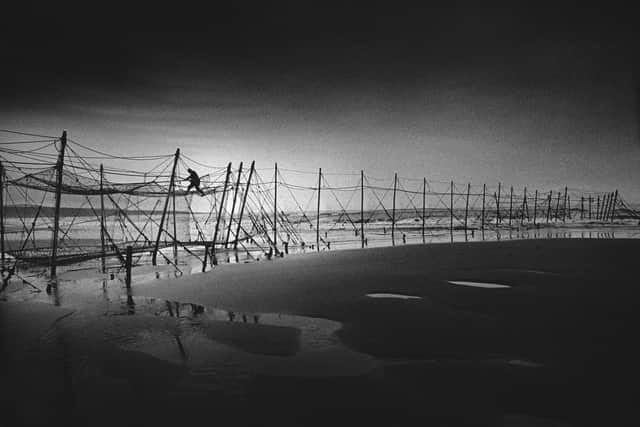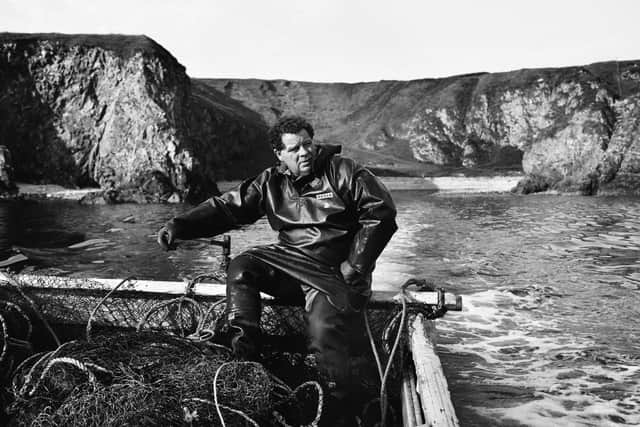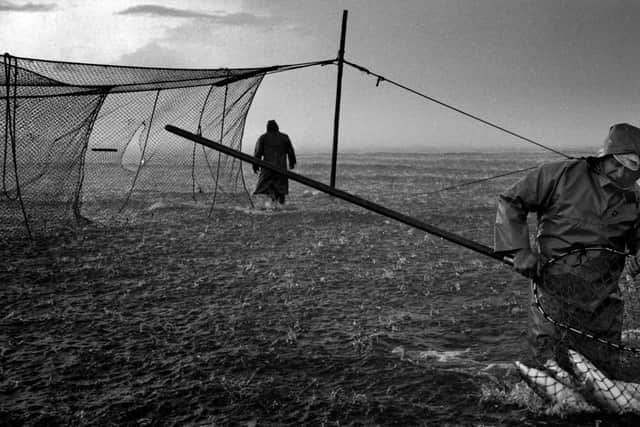The 'race against time' to document Scotland's banned salmon netters
Colin McPherson is returning to the coastline to capture the people, places and traditions which underpinned Scotland’s salmon netting industry, the roots of which can be traced back to the Viking era, before knowledge and memory of the way of life is lost for good.
Salmon netting was hit with an indefinite moratorium by the Scottish Government in 2019 after a successful case was made by the angling lobby that the practice, which catches salmon in open water as it makes its way to breeding grounds upstream, was responsible for depleting valuable river stocks.
Advertisement
Hide AdAdvertisement
Hide AdMr McPherson first started to document the industry in the late 1990s and said he was now compelled to return to the project to create a lasting legacy for the industry.


He said: “It’s so urgent. If I don’t do this in the next two to three years, people’s memories will fade, people will die, knowledge will go and nobody will have recorded it all. It’s a race against time, to be honest.”
Salmon netters stretched from Armadale Bay in Sutherland down to the River Tweed and the Solway Firth, with places such as Balintore in Easter Ross, St Cyrus in Aberdeenshire and Montrose in Angus among their natural home.
As he returns to document the impact of the ban, he has found bothies – where some fishermen traditionally slept during the summer – barricaded off, their flat-bottomed coble boats abandoned and the long, large stakes used to hold the nets rotting in the elements.


The photographer, a founding member of the Document Scotland photography collective, said: “There is a realisation among them that it is never going to come back.
“There is a real sense of loss. Every single one of them told me how much they loved going to work, that there was a bond between them. They have an amazing knowledge of weather, of cloud formations, of the tides. I don’t like to be too sentimental about it as at the end of the day it was an industry, but to me its imperative that it is recorded.”
The salmon netters also came under pressure from conservationists, who were angered by the shooting of seals to protect the catch as well as the impact on stocks given fish were killed before returning to breeding grounds.
More broadly, climate change and the rising grey seal population have been factored as causes of stock decline, as well as the impact of fish farming on marine environments. Salmon numbers lost to angling have exceeded numbers of fish lost to netting in some years, according to accounts.


Advertisement
Hide AdAdvertisement
Hide AdMr McPherson, who is raising funds to continue the project, said he wanted to create a full resource on salmon netting not only for the benefit of future generations, but to chart the changing relationship with the land and the loss of Scottish wild salmon.
“The next bit is to really marshal some resources to tell this really important story, it’s part of Scotland’s history,” he said.
The photographer can be reached via www.colinmcpherson.com.
A message from the Editor:Thank you for reading this article. We're more reliant on your support than ever as the shift in consumer habits brought about by Coronavirus impacts our advertisers.
If you haven't already, please consider supporting our trusted, fact-checked journalism by taking out a digital subscription.
Comments
Want to join the conversation? Please or to comment on this article.
